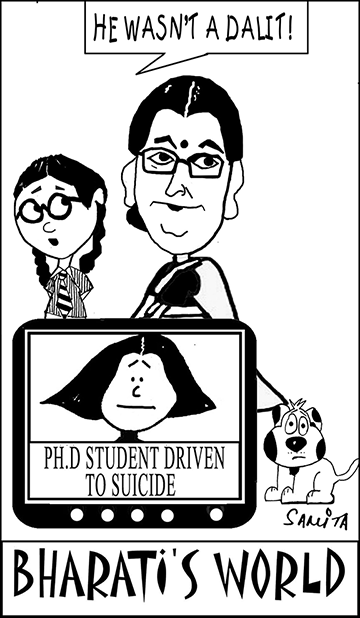 The small and shrinking minority of bona fide academics in the eastern seaboard state of West Bengal, which prides itself for having nurtured some of India’s most renowned scientists and scholars such as Jagadish Chandra Bose, Satyen Bose, P.C. Roy, Meghnad Saha, Prasanta Chandra Mahalanobis among others, are expressing alarm about the continuously declining number of students opting for science streams in higher secondary (Plus Two) schooling. The aggregate number of high school (class X)-leavers signing up for science and maths has declined by 33 percent in the past three years. In 2011, there were over 300,000 students in science streams. This number has declined to 115,000 in 2014 and a mere 95,000 last year. This steady decline in the number of high school-leavers enrolling in PCM (physics, chemistry and maths) or biology study programmes has prompted calls for a fundamental change in science syllabi and pedagogies.
The small and shrinking minority of bona fide academics in the eastern seaboard state of West Bengal, which prides itself for having nurtured some of India’s most renowned scientists and scholars such as Jagadish Chandra Bose, Satyen Bose, P.C. Roy, Meghnad Saha, Prasanta Chandra Mahalanobis among others, are expressing alarm about the continuously declining number of students opting for science streams in higher secondary (Plus Two) schooling. The aggregate number of high school (class X)-leavers signing up for science and maths has declined by 33 percent in the past three years. In 2011, there were over 300,000 students in science streams. This number has declined to 115,000 in 2014 and a mere 95,000 last year. This steady decline in the number of high school-leavers enrolling in PCM (physics, chemistry and maths) or biology study programmes has prompted calls for a fundamental change in science syllabi and pedagogies.
According to educationists in West Bengal, the education sector in general is suffering low budgetary provision (3 percent of state GDP) with the Trinamool Congress government hell-bent on taking control of education institutions and interfering in their day-to-day operations. According to the latest (2006-07) Educational Development Index of India of the National University of Educational Planning and Administration, West Bengal is ranked sixth last among all Indian states and Union territories for primary education provision. Likewise, the Socio Economic and Caste Census, 2011, conducted by the Union rural development ministry and released in New Delhi in July last year, ranks West Bengal among the worst states for secondary and higher secondary education.
However some academics believe the decline in the number of students opting for science subjects is a national, even global phenomenon, with only 15 percent of the country’s estimated 30 million high school-leavers choosing mathematics, physics, chemistry and biology. Comments Samir K. Brahmachari, chairman of the West Bengal Education Commission, established by the TMC government in 2013: “Even in Delhi University’s top colleges, PCM is no longer the first preference of students who seem to prefer the commerce and social sciences streams. To make PCM, biology etc more attractive to school-leavers, a major recasting of syllabuses, investment in labs and lab materials and teacher training programmes are necessary.”
To promote science education, last June the TMC government announced a grant of Rs.5 crore to the Jagadish Bose National Science Talent Search Society (estb.1960), in Kolkata, for establishing a science innovation centre. In addition, chief minister Mamata Banerjee also decreed Rs.38 lakh per year to the institute to pay monthly stipends of Rs.500 to talented class XI-XII students. But for West Bengal (pop. 91 million) which shabbily hosts an educationally short-changed population greater than most European countries, these allocations are mere drops in a bucket.
Baishali Mukherjee (Kolkata)